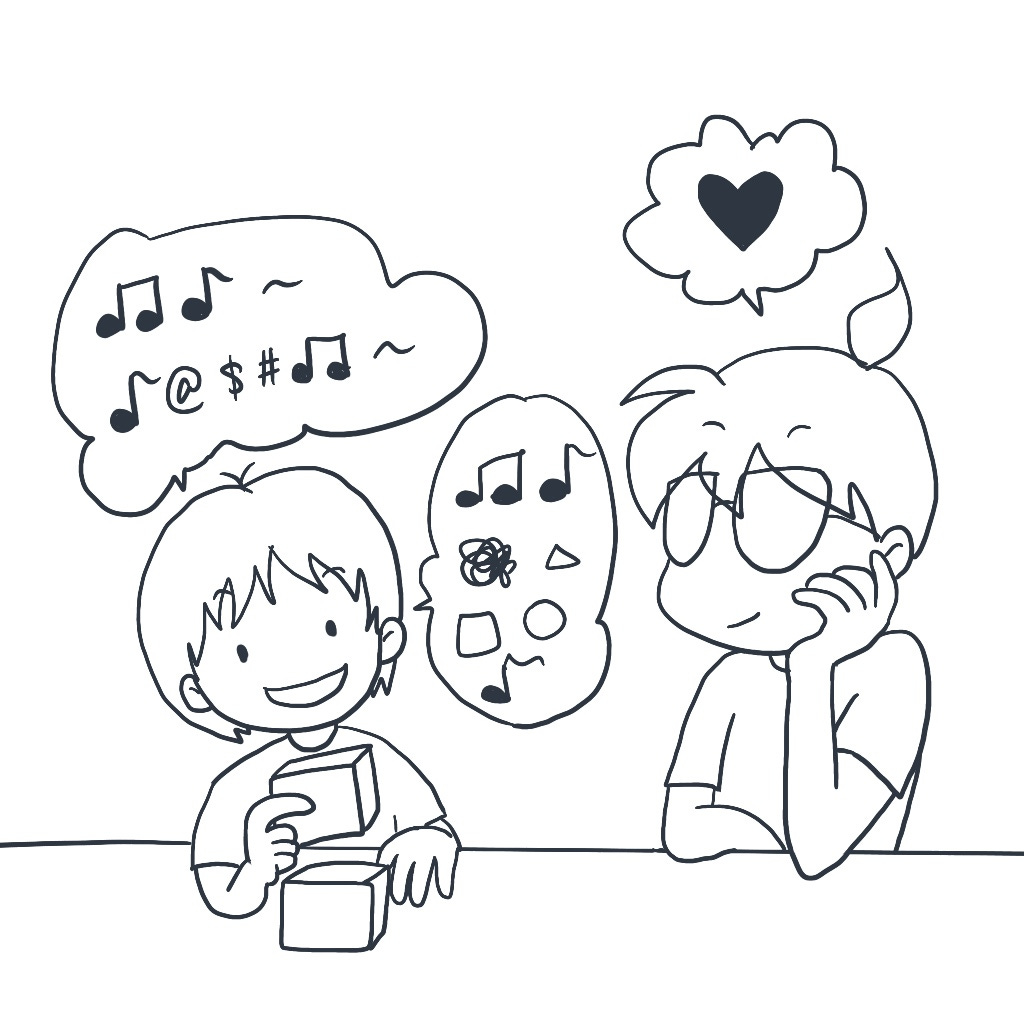Memolines ~ Letting go of the “right way” anxiety: giving our little one freedom to explore
Many standards we consider “correct” happened to be defined by certain people at certain times.
My toddler loves singing lately. She sings while playing, after waking up from naps. Most of her lyrics are “wrong” - sometimes the words don’t match, sometimes I can’t understand what she’s singing at all. By traditional standards, I should probably correct her and teach her the “right” way.
But I never do.
She can’t read yet, so all lyrics are just sounds she picks up from listening. She sings with such joy, and I think that happiness matters more than getting every word “right.”
During dinner once, she watched me put two pieces of apple in my mouth and said seriously, “Mama, don’t put two pieces in your mouth.” I laughed and replied, “Mama’s mouth is big, I can eat them together.” She said “Oh.”
She had established her own “correct” way of eating apples - one small piece at a time, chewing slowly. When she tells me or daddy we’re doing something “wrong,” we tell her, “You have your way, and we have ours.”
I think being obsessed with what’s “right” is actually dangerous. Once we decide there’s only one correct way to do something, we create rigid standards that constrain not only ourselves but also how we judge others. Some children completely melt down when they write a letter wrong, get upset when they put shoes on the wrong feet, or refuse to try again after falling off a scooter. Parents usually comfort them with “it’s okay” and offer to demonstrate the right way, but children often become more resistant. Behind this might be the child feeling pressure that they “must get it right.”
I also have the urge to correct my daughter, but I try to hold back. Children have their own rhythm - if she hears songs enough, she’ll naturally adjust over time. I’m more curious about her interesting “mistakes” than rushing to give the right answer.
For example, she sometimes says “woof” instead of “wool” because she knows woof is the sound dogs make. In her world, these two words are the same.
Many standards we consider “correct” happened to be defined by certain people at certain times. Letters must be written this way, songs must be sung that way - these rules might matter to those who made them, but they don’t necessarily apply to little ones still exploring the world.
Since she turned eighteen months, my daughter’s desire to do things independently has grown stronger. Our approach is simple: if she wants to try something herself, we let her, and ask “Do you need help?” If she says yes, we help; if not, even if she gets a little frustrated, we resist the urge to jump in.
As parents, helping her get things done is easy for us. But some things she can only learn by trying herself, failing a few times, and practicing over and over. That’s how she gets real satisfaction. She does not have to get things “right” the very first time.
I remember growing up with “following the prescribed path” as the default life route: get good grades to be a good student, go to college for a good future. But life actually has many paths. Just like organizing clothes - some people like throwing everything together and finding things like treasure hunting; others prefer folding everything neatly. Finding what works for you is enough; no need to worry about what’s more “correct.”
Thinking of my daughter lost in her own version of songs, swaying happily - that’s enough. Enjoying the process is more interesting than chasing the “right” answer.


